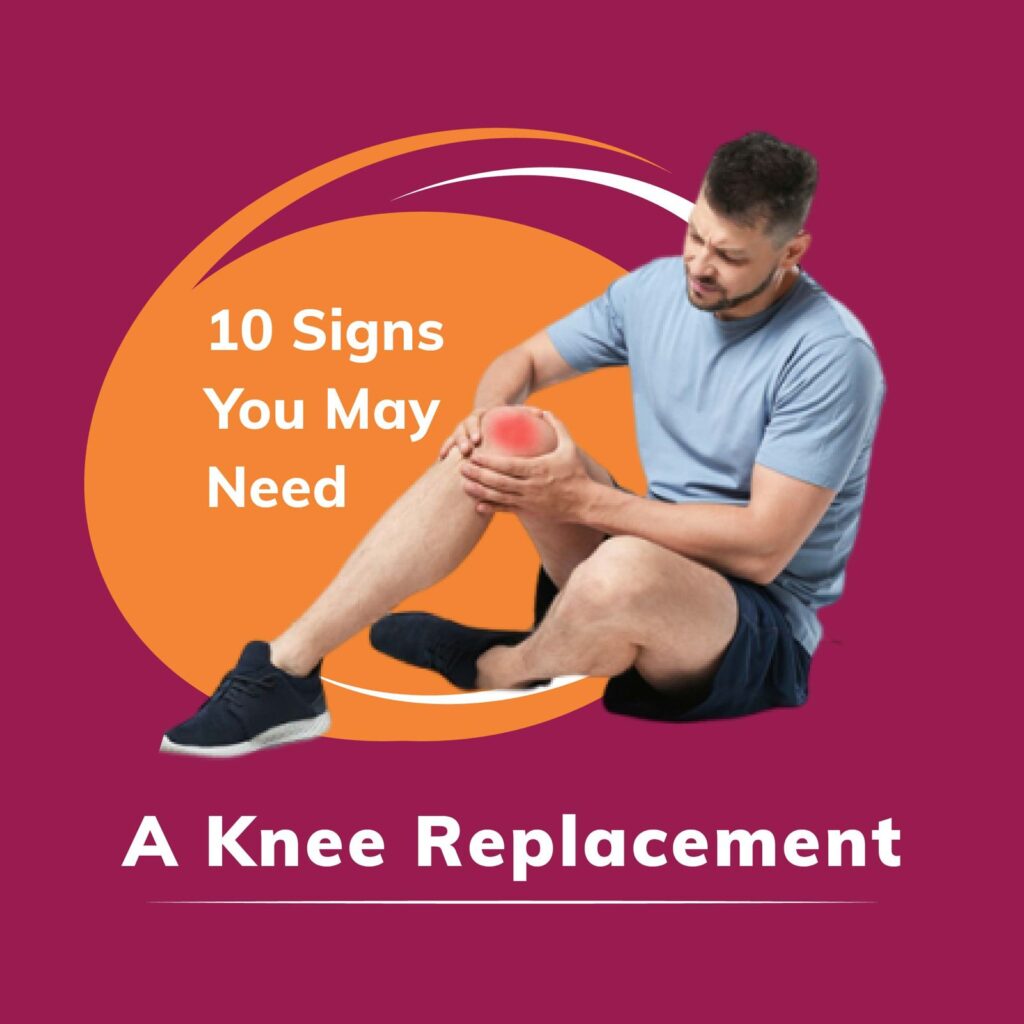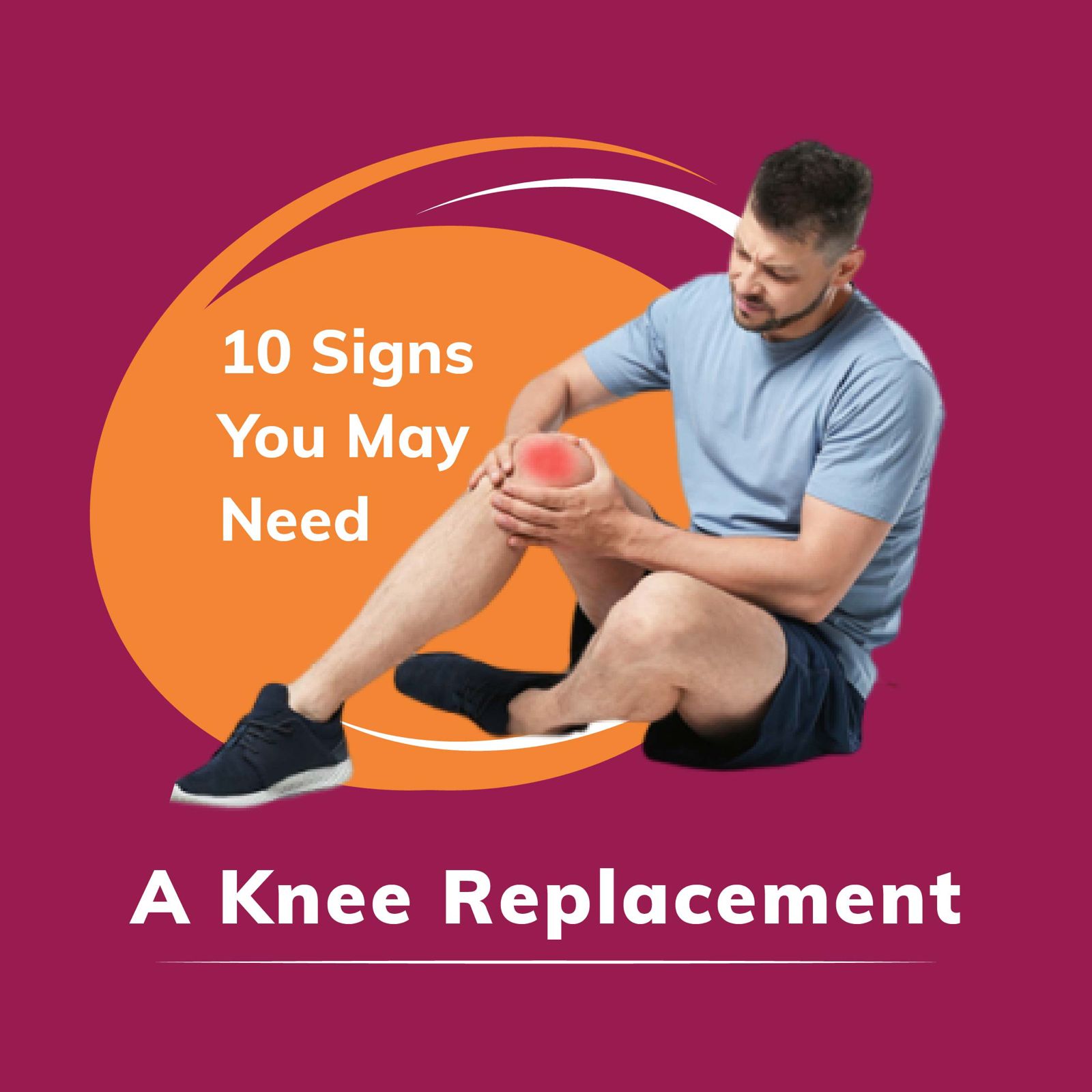
10 Signs You May Need a Knee Replacement
Knee pain and stiffness can significantly impact your daily activities, quality of life, and mobility. While conservative treatments like medication, physical therapy, and lifestyle changes can help manage symptoms, there may come a time when these methods are no longer effective. A knee replacement, also known as knee arthroplasty, can provide much-needed relief and restore your ability to live a more active and pain-free life. But how do you know when it’s time to consider this surgical option? Here are 10 key signs that indicate you may need a knee replacement.
1. Unable to Climb Less Than 10 Steps
If climbing even a few steps becomes a painful or challenging task, it may be a sign that your knee joint is severely compromised. This difficulty can indicate the need for a surgical solution.
2. Unable to Walk More Than 100 Meters
When walking short distances becomes difficult or impossible due to pain, stiffness, or instability, a knee replacement may be necessary to regain mobility and independence.
3. Persistent Knee Pain
Chronic knee pain that doesn’t improve with rest or medication can be a clear sign that your knee joint is severely damaged. If the pain is constant, even during periods of inactivity, it may indicate advanced arthritis or significant joint wear that could benefit from a knee replacement.
4. Difficulty in Daily Activities
If basic activities like walking, climbing stairs, or standing for extended periods become increasingly difficult, it may be time to consider surgery. Knee replacement can help restore mobility and allow you to perform these tasks more comfortably.
5. Reduced Range of Motion
A healthy knee should allow smooth bending and straightening. If you’re unable to fully bend or extend your knee, it could be due to joint damage or inflammation. Limited range of motion can make even simple movements challenging.
6. Severe Swelling and Inflammation
Recurring or chronic swelling that doesn’t subside with medication or rest is another indication of advanced joint damage. Swelling is often a sign of inflammation in the knee, which can worsen over time and affect the joint’s overall functionality.
7. Joint Deformity
Visible deformities in the knee, such as bowing inward or outward, are signs of severe joint degeneration. Structural changes in the knee may require surgical correction to restore proper alignment and function.
8. Frequent Instability
If your knee frequently gives way or feels unstable, it may indicate weakened ligaments or severe joint damage. Instability not only makes walking difficult but also increases the risk of falls and injuries.
9. Pain Interferes with Sleep
Knee pain that disrupts your sleep or keeps you awake at night is a serious concern. Persistent nighttime discomfort can affect your overall well-being and signal the need for surgical intervention.
10. Ineffectiveness of Non-Surgical Treatments
When conservative treatments like medications, physical therapy, cortisone injections, or lifestyle changes no longer provide relief, it’s time to explore surgical options. Knee replacement is often the next step for patients who’ve exhausted non-surgical methods.
When to Consult a Doctor
If you’re experiencing any of these signs, it’s essential to consult an orthopedic specialist. Your doctor will evaluate your symptoms, medical history, and imaging results to determine whether a knee replacement is the right solution for you.
Types of Knee Replacement Surgery
Depending on the severity of your condition, your doctor may recommend one of the following:
- Total Knee Replacement: The entire knee joint is replaced with prosthetic components.
- Partial Knee Replacement: Only the damaged portion of the knee is replaced, preserving healthy bone and tissue.
- Revision Knee Replacement: A follow-up procedure for those who’ve had previous knee replacements that need adjustments.
Benefits of Knee Replacement
A knee replacement can offer several benefits, including:
- Significant pain relief.
- Improved mobility and range of motion.
- Enhanced quality of life and ability to perform daily tasks.
- Long-lasting results, with most knee replacements lasting 15-20 years or more.
Conclusion
Living with chronic knee pain can be debilitating, but you don’t have to endure it indefinitely. Recognizing the signs that you may need a knee replacement is the first step toward regaining your mobility and quality of life. At M & M Ortho and Multispeciality Hospital, we specialize in diagnosing and treating knee conditions with advanced techniques and personalized care.
If you’re struggling with knee pain or suspect you may need a knee replacement, schedule a consultation with Dr. Madhu Reddy, the best orthopedic doctor in Attapur, Hyderabad. Together, we can explore the best treatment options to get you back on your feet and enjoying life to the fullest.
Your journey to pain-free living starts here!




